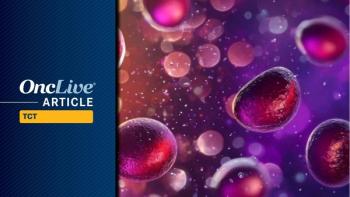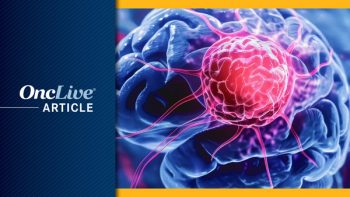
DLBCL: Managing Toxicities of CAR T-Cell Therapy
Transcript:
Stephen J. Schuster, MD: There are 2 unique toxicities of CAR T cells that physicians and oncologists will learn about as they begin to manage patients: cytokine release syndrome and neurotoxicity.
Cytokine release syndrome is the result of rapid expansion of the T cells after administration and the cytokines that are generated during expansion, primarily interleukin-6 (IL-6). If somebody were to develop, for example, sepsis or a large rapid expansion of cytokines, you could see hypotension, capillary leak syndrome, organ dysfunction, liver dysfunction, kidney dysfunction, shock, etc. Usually, the earliest sign of this is fever. In the JULIET trial, the median onset of fever was at 3 days, followed by cytokine release syndrome. Generally, it is successfully managed by administering tocilizumab (Actemra), an anti-interleukin-6 antibody, that will generally abort this, and does not seem to impair efficacy or response.
If you look at serious cytokine release syndrome on the JULIET trial—grade 3, grade 4—there were no grade 5 events related to CRS. There was about one-quarter of the patients with cytokine release syndrome that was serious. About 10% or 12% of total patients received tocilizumab, and most patients could be managed by fluid boluses, antipyretics, antibiotics, etc. It’s generally a manageable toxicity, and if physicians are alert that it can happen frequently, they’ll be able to intervene early and patients will recover with proper therapy.
The CRS rate reported for Yescarta appears lower, but they used a different grading system, so you cannot compare the 2; I suspect they’re about the same. We used the Penn scale and they used the Lee scale. The Lee scale “grade 2” is a “grade 3” on the Penn scale, and a “grade 3” on the Lee scale is a “grade 4” on the Penn scale. It’s difficult to compare the 2 studies but management is the same; tocilizumab, for Yescarta as well. A higher percentage of patients got tocilizumab on the Yescarta trial than on JULIET, but, again, the thresholds for administration were different per protocol and it’s hard to use that as a way to compare. In any event, cytokine release syndrome, if properly recognized and managed, should not result in mortality in any significant number of patients based on these 2 registrational trials for CAR T-cell products.
The other unique toxicity of CAR T-cell therapy—and this applies to Yescarta, the CD28-driven T cell, or Kymriah, the 4-1BB—driven T cell—is a new phenomenon. We don’t understand the pathophysiology of it, and it can range from just a mild, expressive aphasia to confusion, to frank delirium, to seizures, and to coma in the most severe forms. The onset is usually after cytokine release syndrome, and we manage it with steroids, although I think it just runs its course. We saw no fatalities from neurotoxicity on the JULIET trial, and occurrence was about 12% of patients were treated. The fine clinical phenomena are similar with Yescarta, although the reported neurotoxicity rate seems to be higher—it was between 25% and 30% for the Yescarta trial. Again, I don’t know that you can really compare trials—in terms of if one is more neurotoxic than the other—because the criteria for defining neurotoxicity related to the T cells is at the discretion of the investigator.
If somebody is confused during a fever or febrile episode, then the fever abates and the patient is lucid, and the investigator says the mental status change was due to the fever—and the fever was related say to an infection—then they wouldn’t call that a neurotoxicity related to CAR T cell. There is some subjectivity, so there is a little bit of danger in comparing numbers across these studies, but the number was a bit higher for Yescarta than for Kymriah. The management was similar for that, with similar steroids, and with the Kymriah compound, it’s unlikely to be a serious or fatal toxicity if recognized early on by the treating physicians. Management is per package insert or algorithm, which involves steroids, anticonvulsants, etc.
Transcript Edited for Clarity




































